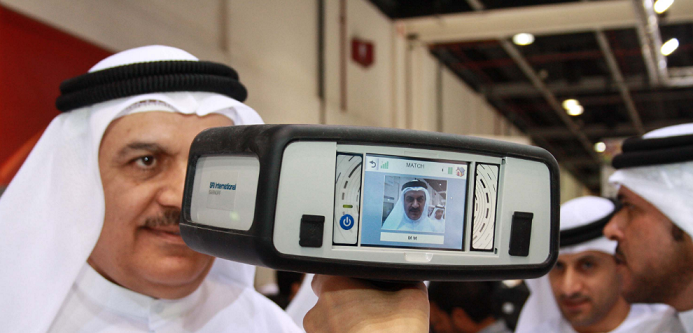 According to new research conducted by Frost & Sullivan in collaboration with GITEX Technology Week 2016, the next 10 years of augmented Reality (AR) and Virtual Reality (VR) technology development are set to redefine the future of both business and consumer processes and interactions in the region. GCC organisations are leveraging the new technology to enhance end-user experiences, the report states.
According to new research conducted by Frost & Sullivan in collaboration with GITEX Technology Week 2016, the next 10 years of augmented Reality (AR) and Virtual Reality (VR) technology development are set to redefine the future of both business and consumer processes and interactions in the region. GCC organisations are leveraging the new technology to enhance end-user experiences, the report states.
From AR-enabled surgery to VR-powered education, experts from across industries will take the stage at GITEX Technology Week this year to share their innovative use cases of AR/VR technologies and provide a glimpse into the future of this game-changing technology.
Augmented Reality – contextual information on mobile devices, projections, or wearables – and Virtual Reality which provides a fully-immersive digital environment, will be adopted across industries by 2025, the new report from Frost & Sullivan predicts.[1] In response to the interest in AR and VR technology in the region, GITEX Technology Week 2016 will showcase the largest area in show history for AR and VR technologies with 560 square metres of the show committed to AR and VR exhibitors.
Research reports corroborate predictions that the AR and VR market is booming, with IDC reporting that AR and VR hardware revenue is topping USD 2 billion globally for the first time this year. The firm further predicts that device shipments are set to grow 11-fold to 110 million by 2020.[2]
“AR and VR will be a giant step in transforming and democratising education and businesses, especially in medicine, where immersive technology can facilitate education and access-at-a-distance for medical care,” said Dr Rafael Grossmann, who will be headlining GITEX’s Healthcare Monday – an industry vertical conference dedicated to healthcare technology.
Dr Grossmann was the first person to stream a live surgical procedure with Google Glass. At GITEX, he will explain how UK-based healthcare company Medical Realities, led by colleague Dr Shafi Ahmed, live-streamed the first VR surgery from The Royal London Hospital, with 54,000 viewers virtually in the operating theatre.
“From all around the world, they gained an exclusive point-of-view demonstration and interacted in real-time with the surgical event. Imagine how this level of interaction can deliver next-generation education for students worldwide, especially in developing countries,” added Dr Grossmann.
In the GCC, organisations no longer need to imagine the impact of AR and VR – they are already deploying the technology in fascinating new ways. Programmes across industries in the GCC are eager to adopt AR and VR technologies to streamline processes and support the lives of employees, students and the general population. The new report from Frost & Sullivan highlights a number of unique AR and VR initiatives and projects in the region.
Public agencies have been quick on the uptake of AR and VR technology in the GCC, Frost & Sullivan says, highlighting a number of cutting-edge initiatives in the region. Sheikh Zayed Housing Programme, the agency that provides Emirati housing, has launched the My Virtual Home App, which uses AR to allow users to virtually tour readymade 3D housing models. The Dubai Road and Transport Authority (RTA) has launched Wojhati, a trip planning mobile app with GPS to help users plan, track, and share their mass transit routes. The RTA is also partnering with the Dubai Future Foundation for 25 per cent of Dubai’s road trips by driverless vehicles by 2030.
Education in the region is also being augmented with new technology, the report outlines. Providing students with VR experience, Abu Dhabi’s Masdar Institute has partnered with the Georgian startup InGlove to develop an interactive VR glove for construction, medical, military, and psychology simulations. Mohamed Ali Hammami, Head of VR at Qatar University, will attend GITEX Technology Week 2016 for the GITEX’s Education Wednesday conference to present his work on the Middle East’s first VR studio, allowing for innovative courses and research tools, such as prototyping building and product models.
Also at GITEX this year, Qatar’s web design company Codea will share best practices in developing the AR shopping app Real Aug Shoppie, which provides personalised information and coupons when products are scanned. Marks & Spencer’s Middle East stores have launched Virtual Closet, using AR for customers to try on outfits and accessories.
“The potential for AR and VR can be reached now that the attention of SMEs and other stakeholders is focused on the different application areas. This is the reason why EuroVR gathers industrials, SMEs, and research institutes to stimulate research and practical uses for business competitiveness,” said Marco Sacco, President of the European Association for Virtual Reality and Augmented Reality (EuroVR), a supporting partner at this year’s GITEX Technology Week.
Further supporting AR-powered mobile app innovation, Corinne Avelines, Global Head of Digital and eCommerce at paints and chemicals company AkzoNobel, will present a keynote on the company’s Visualizer app, which uses AR for people to see the effect of painting rooms in different colours.
Held under the theme of “Reimagining Realities,” GITEX Technology Week 2016 aims to develop stronger business ties with the immersive technology ecosystem to drive AR, VR, and AI innovation. Attendees are set to include the ecosystem of hardware and software manufacturers, startups, app developers, and experts.
“GITEX Technology Week 2016’s focus on AR and VR demonstrates the Middle East’s strong potential for transformation. Driving the market, GITEX will be the region’s most prominent platform for taking AR and VR out of the lab and into the mainstream. Attendees can experience innovations, hear industry insights from experts, and network with key players,” said Trixie LohMirmand, Senior Vice-President, Exhibitions and Events Management, Dubai World Trade Centre.

